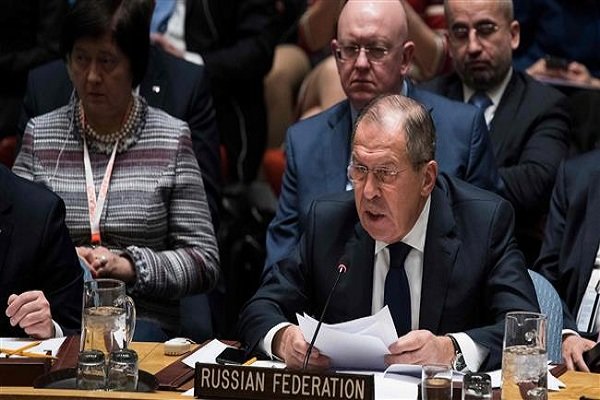Lavrov: JCPOA failure would send alarming message for ‘international architecture’

Russian Foreign Minister Sergei Lavrov warned on Thursday that if the 2015 Iran nuclear deal - or Joint Comprehensive Plan of Action (JCPOA) - collapses, it would send an “alarming” message to the world.
Advising signatories of the deal against abandoning it to pursue their own interests, Lavrov told a UN Security Council meeting on weapons of mass destruction that the deal between Iran and six world powers -- the U.S., the UK, France, China, Russia and Germany -- is “a genuine achievement of international diplomacy,” RT reported.
Lavrov also denounced the United States’ stance on the nuclear agreement as politically-motivated, saying the deal cannot be abandoned “for the benefit of political agendas of certain countries.”
“Clearly the failure of the JCPOA, especially as a result of one of the parties... would be an alarming message for the entire international community architecture,” Lavrov said at the Security Council.
UN chief warns prejudice against JCPOA
Meanwhile, UN Secretary General Antonio Guterres on Wednesday urged nations not to damage the nuclear agreement because of concerns they may have with Iran's nonnuclear military activities.
"Issues not directly related to the [nuclear deal] should be addressed without prejudice to preserving the agreement and its accomplishments," Guterres said in a statement.
The deal is a "major achievement of nuclear nonproliferation and diplomacy, and has contributed to regional and international peace and security," he said.
The administration of U.S. President Donald Trump has repeatedly criticized Iran's ballistic-missile development as well as support for Syria's government in a six-year civil war and its backing of Yemeni Houthi rebels, while demanding major changes in the nuclear deal.
On January 12, Trump threatened to pull out of the deal unless it is changed to clearly prohibit ballistic-missile development, among other changes he is seeking.
Trump said he was waiving U.S. nuclear-related sanctions for another 120 days, as required under the deal in exchange for curbs on Iran's nuclear activities.
But he said he was doing so for the "last time" to give U.S. and European negotiators a "last chance" to enact measures to fix what he called the deal's "disastrous flaws."
Iran has ruled out any changes in the agreement, maintaining that Trump's demands violate terms of the deal sealed by the administration of former U.S. President Barack Obama and signed by Britain, France, Germany, China, and Russia.
Guterres noted that the International Atomic Energy Agency has repeatedly concluded that Iran is fulfilling its side of the agreement.
SP/PA
Leave a Comment